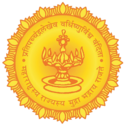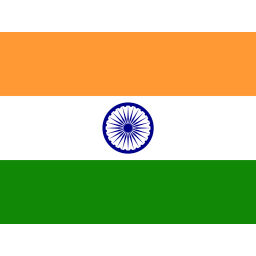Governor’s address at the demonstration of the Digital Classroom and inauguration of National Symposium on ‘Ayush in Public Health’ organized by the Savitribai Phule Pune University at Pune
Address by Shri CH Vidyasagar Rao, Governor of Maharashtra at the demonstration of the Digital Classroom and inauguration of National Symposium on ‘Ayush in Public Health’ organized by the Savitribai Phule Pune University at Namdeo Sabhagruha, Kher Vangmay Bhavan, University Campus, Pune at 1100 hrs on Saturday, 13 August 2016
Prof. Wasudeo Gade, Vice Chancellor, Savtribai Phule University of Pune, Shri Darshan Shankar, Vice Chancellor, Trans Disciplinary University, Bangaluru, Prof R K Mutatkar, Honorary Director, Centre for AYUSH in Public Health, Dr K Satya Lakshmi, Director, National Institute of Naturopathy, Smt Shailaja Chandra, former Secretary AYUSH, Government of India, Dr V B Gaikwad, Director, BCUD, Dr Anita Kar, Director, Department of Health Sciences, Registrar, officials, members of faculty, staff, invitees, ladies and gentlemen,
I am indeed very happy to visit the Savitribai Phule Pune University, which is one of the most prestigious Universities in the country.
Digital classrooms are changing the way, teachers are teaching, and students are learning. In today’s age of internet, smart phones and other gadgets, digital classroom is only a logical step in the field of knowledge-sharing and dissemination.
I was happy to visit the Digital Classroom and the e Content Studio created by the University under the Rashtriya Uchchatar Shiksha Abhiyan today and I am glad that the University has constructed 29 digital class rooms. I would like to congratulate the University for taking a quantum leap in harnessing Information Communication Technology in the process of teaching – learning.
We must see how digital classrooms help us to bring down the cost of education, produce and relay quality contents to the students and reach out to maximum students who wish to pursue higher education.
Today I was particularly pleased to meet the team of ‘Swayam’ from the College of Engineering Pune who have demonstrated the power of research and innovation to the world. I congratulate every single member of Swayam and I would like to tell them that the nation has great expectations from them, from the College of Engineering Pune and from the Savitribai Phule University of Pune.
Ladies and gentlemen,
I would like to congratulate Vice Chancellor Dr Gade and the School of Health Sciences for organizing this National Symposium on AYUSH in Public Health.
For centuries, Ayurveda, Yoga, Unani, Siddha, Naturopathy and Homoeopathy were an integral part of the healthcare system in India. With the arrival of the British, Indians were introduced to the modern medicine system.
The traditional knowledge of these systems of healing was so much ingrained in the people that people used to visit the Vaidya or a doctor only as a last resort.
There was an interesting saying in Hindi,
हाथ पांव गरम, पेट नरम और सर ठंडा
और गया बैद के पास तो मारो डंडा
Unfortunately we lost our traditional wisdom during the long spell of foreign domination.
In his address to the nation from the ramparts of Red Fort in the year 2001, the then Prime Minister of India Shri Atal Behari Vajpayee Ji had appealed to the farmers to seize the opportunity of world-wide attraction for Indian Systems of Medicine. AYUSH was formed as a department in the year 2003.
Thanks to the vision of the Hon’ble Prime Minister Shri Narendra Modi, a separate ministry of AYUSH was formed in the year 2014, almost 67 years after independence. This decision will go down in the history of healthcare as a historic decision.
There is no denying the fact that modern medicine and surgery is largely responsible for improving the health of the nation during the last 69 years since Independence.
At the time of Independence, the average life expectancy of the people of India was 32 years. Today it has crossed 65 years.
However for a large and diverse country like India with uneven availability of healthcare infrastructure, we cannot have modern medicine alone.
There are 7 physicians per 10,000 population in India, compared to 15 in China, 25 in United States, 28 in the UK and 43 in Russia.
It is therefore imperative that we integrate the strengths of Plural Systems of Medicine for health care. In this connection, I am happy to know that an integrated National Health Policy is also on the anvil.
We have the National Institute of Naturopathy inspired by Mahatma Gandhi’s Naturopathy initiatives started in Pune. Thanks to the leadership provided by the Hon’ble Prime Minister in declaring 21st June as International Yoga Day, Yoga has received global recognition. Panchkarma has also received worldwide attention. I do feel that the strengths of AYUSH can be leveraged to make India the world’s most favourite health and wellness destination.
Lifestyle diseases, particularly diabetes are causing a great havoc in our country posing serious challenge to public health. According to the International Diabetes Federation (IDF), India is currently home to over 61 million people with diabetes. By 2030, India’s diabetes burden is expected to cross the 100 million mark. One million Indians die every year due to diabetes related complications.
We can overcome this challenge by focusing on preventive healthcare and harnessing the power of AYUSH for the well-being of our people.
Woman-centred healthcare is extremely important especially in India. Maternal and women’s reproductive health-care plays a pivotal role in the life of the nation. One of the Millennium Development Goals to which India is committed is, reducing maternal mortality and achieving universal access to reproductive health care. Thought must be given to harnessing the power of AYUSH in providing maternal, pre natal and neonatal care.
We are fortunate in having tremendous plant and medicinal plant biodiversity in Maharashtra. We have forest resources in Gadchiroli and bio-diversity in Sindhudurg district. Our young men and women could be trained to identify, plant and explore these natural resources for AYUSH based occupations. This can be done as part of skill development programme. I quite feel that we have the potential to become a huge market for AYUSH products, which in turn can bring employment and prosperity to our people.
I understand that the Research Centre of the University, – the Maharashtra Association of Anthropological Sciences – has undertaken AYUSH field research projects in Himachal Pradesh, Madhya Pradesh, Chhattisgarh and Maharashtra supported by AYUSH Ministry.
I am very happy that the University has organized a National Symposium on AYUSH to discuss issues of importance to the people. I look forward to receiving the recommendations emerging out of this national symposium.
I congratulate the University and the Centre for AYUSH in Public Health for organizing the Symposium and wish you all fruitful deliberations.
Thank you.
Jai Hind ! Jai Maharashtra !!



